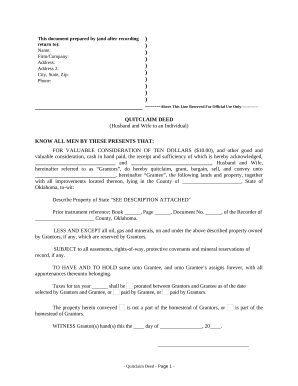
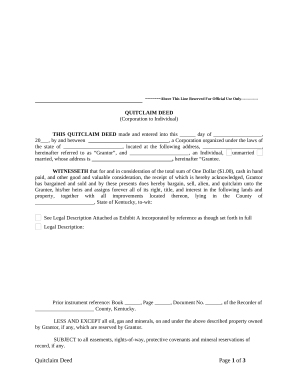
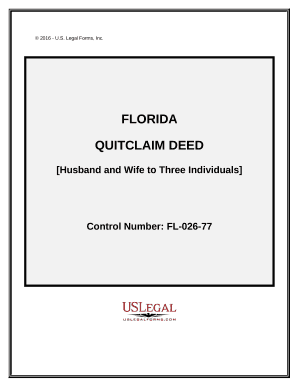
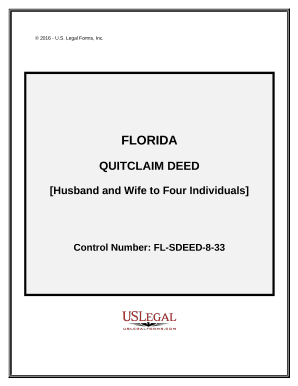
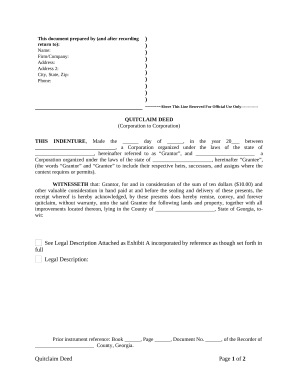


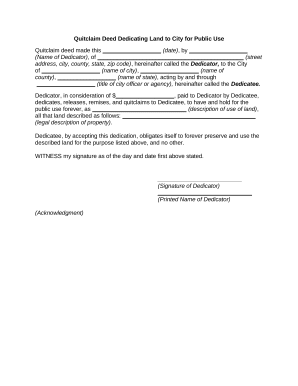

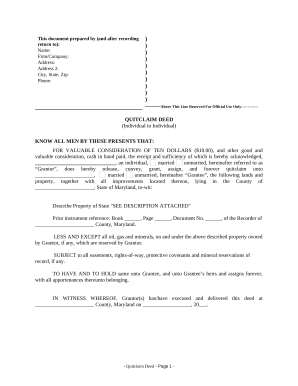
Form managing occupies to half of your office hours. With DocHub, it is simple to reclaim your office time and increase your team's efficiency. Get Quitclaim Deed Procedures category and discover all form templates related to your day-to-day workflows.
The best way to use Quitclaim Deed Procedures:
Speed up your day-to-day file managing using our Quitclaim Deed Procedures. Get your free DocHub profile today to explore all forms.